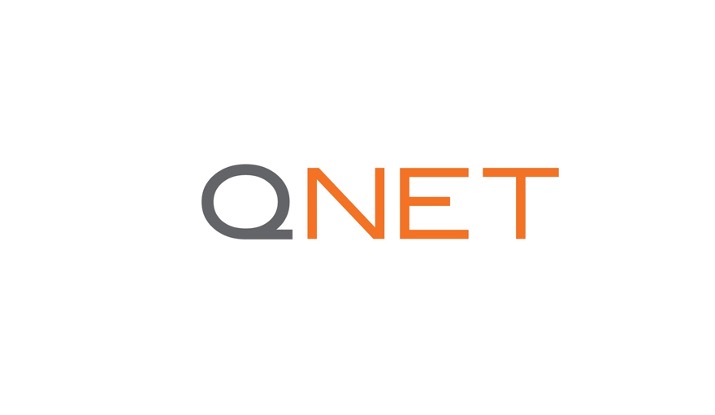Could QNET Be a Scam?
QNET is a direct selling company with a global customer base and a presence in more than 25 countries. Unfortunately, despite two decades of success, it’s often mistaken for a scam or Ponzi scheme. Could QNET be a scam? Absolutely not. The truth is that it’s a legitimate business that has tapped into the rise in micro-entrepreneurship.
The company encourages all its distributors, known as independent representatives, who ask, “Could QNET be a scam?” to research the fraud allegations and make up their minds about the direct selling platform. As a result, the company’s business model, powered by e-commerce, has assisted thousands of micro-entrepreneurs in nearly 100 countries worldwide with setting up their own businesses.
The direct selling company’s CEO, Malou Caluza, says it has “so many moving stories of people who came from nothing and went on to achieve financial and personal goals beyond their wildest dreams. Direct selling circumvents barriers of gender, education, and even economic disposition. With hard work and consistency, distributors can make exponential strides in growing their direct selling business.” That’s why it’s unfortunate that it’s often mislabeled as a scam or scheme.
Pyramid schemes are a significant problem. Data from the Federal Trade Commission reveals it received 2.8 million fraud reports from consumers in 2021. That’s a 70% increase over 2020. The report listed the five top fraud categories: imposter scams; prizes, sweepstakes, and lotteries; online shopping scams; internet services; and business and job opportunities.
The FTC stated, “Of the losses reported by consumers, more than $2.3 billion of losses reported last year were due to imposter scams — up from $1.2 billion in 2020, while online shopping accounted for about $392 million in reported losses from consumers — up from $246 million in 2020.”
Pyramid Schemes Require Recruitment
Most of the misinformation about QNET circulating online and through the media is amplified by a lack of understanding of the direct selling business model and how it differs from fraudulent pyramid schemes. Those schemes are designed to get more people recruited into the program. The business model is built on consistently recruiting new people to make an initial investment.
The original promoters recruit investors, who then recruit more investors, and so on. It is called a “pyramid” because, at each level, the number of investors increases. The small group of initial promoters at the top requires a large base of later investors to support the scheme by providing profits to the earlier investors.
Conversely, the direct selling business pays commissions based solely on products sold. The company states, “QNET’s compensation plan is designed to only pay commissions on volume of product sales and not on recruitment. The business model has no options to make money based on adding people to the network. In addition to the regular commissions, [the company] has also designed a recognition platform to reward achieving distributors based on achieving specific sales targets.”
The company’s distributors get a virtual office to monitor their business. A spokesperson for the direct selling company says, “It shows them how much sales they have generated, how much commissions they’ve earned, what is the size of their team, who is performing well in their team and who is not, what they need to do to reach the next level in the sales rank, and so much more.”
Distributors are given an e-wallet in their virtual office, and this is where commissions are paid every week. It’s calculated based on the product sales the distributors and their teams have generated the previous week. The company also offers a crypto wallet payout option.
Could QNET Be a Scam?
If the direct selling company were a scam, it wouldn’t be able to operate in regions with strict regulatory systems and consumer protection laws. However, it conducts business and has offices around the world, including in Singapore, Germany, UAE, India, and Hong Kong.
According to the company, it “always endeavors to comply with local laws and regulations, but sometimes there are instances of miscommunication. Most of the time, this has to do with a lack of understanding of how direct selling works.”
“The challenge is the lack of awareness and the lack of a legal framework to help the public differentiate between the genuine companies and the pyramid schemes,” says Caluza. As a result, the company embraces transparency in all aspects of its business.
It doesn’t try to hide the fact that the Ministry of Finance in Rwanda banned its operations there in 2009 simply because it didn’t have local offices operating within the country. “QNET faces challenges when emerging economies have difficulty adapting their laws and regulations to new business models,” stated the company. In 2012, the company opened a Rwanda office, and the Ministry of Finance overturned the ban. Today, Rwanda is the headquarters for the direct selling company’s entire East Africa operations.
What is the secret to the company’s continued success? “The foundation of the direct selling business is the relationship and personal touch that distributors build with their customers and their own team members,” says Caluza. “This industry has always proven to be resilient and adaptable.”
Caluza continues, “We have developed a number of campaigns and videos to help potential [independent representatives] understand that they are not joining a get-rich-quick scheme. If they want to make a quick buck, QNET is not for them. It is for those who are interested in building a long-term business that will not be easy in the beginning. But the results will be rewarding once you have put in the work and diligently followed the best practices that you are trained in. It may take time, but it will be worth the wait.”

